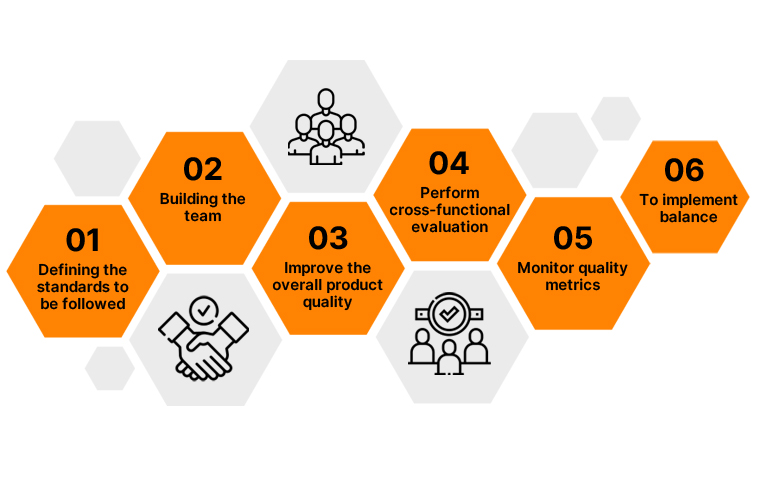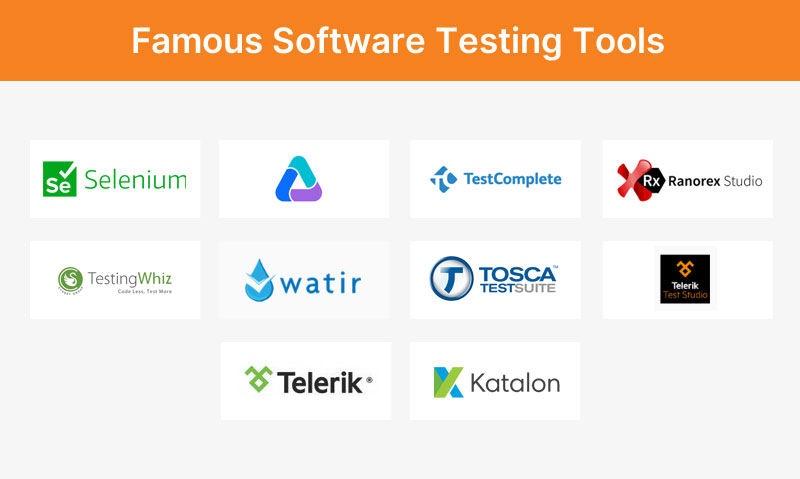Software testing is necessary as it detects defects or bugs before they are delivered to the client, ensuring the quality of the product. It improves the software’s dependability and ease of use. Thorough software testing services guarantee that it is reliable and performs well.
Testing forms the essence of a high-performance application.
The global software Testing Services market size is estimated to grow at a CAGR of 12% with USD 34.49 billion during the forecast period 2021-2025.

Source: Technavio
Now, let us bring a perspective to this notion.
For many years, software development for mobile devices, cloud computing, and business management will remain in high demand. This will include the need for software quality assurance and testing.
To that end, one needs to explore the role of a QA specialist, i.e., the tester responsible for assessing and testing the code.
QA managers play an essential role in ensuring that software meets user expectations. They plan and coordinate quality control processes with QA teams. QA managers need help as organizations move to agile environments since they are unfamiliar with their roles.
How do you understand your role when it isn’t defined in a strictly agile organization? For this, A QA manager must understand what is required to move into agile projects.
Key to Success: They Understand thoroughly what’s needed to build the product with Agile methodology. Before this topic, let’s understand the term “QA manager.”
Also Read: Is Outsourcing Software Testing the Best Option for Your Company?
Understanding the Role of a QA Manager
QA managers act as subject matter experts who establish guidelines, standards, methodologies, procedures, and metrics. Quality is managed within the team in pure agile organizations and often by onboarded experts that bring their experience and insights into the development cycle.
When a software development team is responsible for and measured by its code’s quality, delivering high-quality code becomes a priority. As a result, your team produces better code. They are the decision-makers for establishing, implementing, and maintaining all aspects of testing in software development companies.
They are also responsible for hiring new candidates, evaluating them based on their skills and experiences, providing guidance on improving their performance, and ensuring they follow the established rules within the company.
Quick Plug: Netsmartz has a dedicated team of remote software testers and QA experts who specialize in managing and assessing performance and identifying problems, gaps, or missing requirements in the product user manual or automation testing. With Remote QA experts, you can streamline software delivery without any hiccups.
A software quality assurance (QA) manager’s role is to create and supervise the process of checking that software programs are executed as they were designed.
Tasks include —
- Creating a plan for testing the product
- Determining the project’s priorities and deadlines
- Assigning testing tasks
- Monitoring the production staff’s work
- Ensuring that every aspect of the software system is thoroughly tested
- Overseeing changes in procedures or personnel, recommending corrective action to be taken when problems arise during testing
- We are preparing final release documentation for distribution with the finished product.
Managers are responsible for ensuring that the team is operating efficiently and reliably and that they can produce high-quality code while staying within budgetary and time constraints.
Role & Responsibilities of QA Managers in Agile Organizations

Defining the standards to be followed
The characteristic of excellent QA managers is that they helm their teams while providing them with the required responsibility and freedom. However, there should be no standards for the entire team to follow. A few criteria should be defined for the organization.
One anticipates the smooth operation of a coherent organization. A few predetermined criteria, like—
- How to operate them and which software testing tools should I choose?
- What testing methodologies should you use?
- How can effective defect management, such as establishing defect statuses, be implemented?
- Methods for determining the condition of development and working appropriately.
The QA managers determine the standards. The R&D team uses these guidelines to incorporate QA processes within their development teams. It ensures that all team members are following similar techniques and being trained in the same manner.
Building the team
Each development team deals with one aspect of the process. The main strength of the first one is designing the UI, while another’s connecting with databases.
In addition, they must determine the number of testers in a team and define individual responsibilities. The team will also need to outline how these responsibilities work together and serve the entire team.
Improve the overall product quality.
In each domain, teams develop, test, and deliver user stories. QA experts are responsible for cross-functional testing. These tests aim to test the interactions between different modules in various environments so that any integration, performance, or security problems are avoided.
A QA manager is crucial to system quality. They are uniquely positioned to identify bottlenecks and take timely steps to remove them.
Perform cross-functional evaluation.
End-to-end tests must be executed in many scenarios, such as precise device-browser-OS combinations, and the QA manager must make sure this happens. They can use it to confirm that there are no functional, security, or integration problems with the system.
Cross-functional testing is one of the duties and obligations of QA managers, who ensure that all features operate as intended. The key responsibility of QA managers is not only to check or approve/disapprove comprehensive system quality but coordinate with developers, QA architects, and other team members.
Monitor quality metrics
A QA manager must take a macro view of quality by observing the trends in metrics across all teams. Teams need to perform better for several reasons. If the QA supervisor is equipped with the appropriate metrics, they may rapidly identify the core of the problem, closely examine the team’s working procedures, and improve them.
To implement balance,
QA managers must move testers between groups to address the immediate requirement for more testing. More developers (familiar with testing) may also be involved to conduct more intensive and broader testing.
Also Read: Benefits of Outsourcing Cyber Security Testing for Startups in 2023
Choosing the Right Software Testing Tools
Tools and frameworks selection is among the responsibilities of QA managers. Automation is integral to agile development.
QA managers must choose tools to facilitate practical tests that suit the use case and produce accurate results based on the team’s nature, processes, and technical abilities. QA managers must choose tools to facilitate practical tests that suit the use case and produce accurate results based on the team’s nature, processes, and technical abilities.
QA managers must choose tools to facilitate practical tests that suit the use case and produce accurate results based on the team’s nature, processes, and technical abilities. While doing so, they have to consider multiple factors, accommodate the needs of various groups, and keep timelines and budgets in mind.

Hiring a Remote Software Testing Team
Hiring remote QA testing services is often more prudent, and outsourcing software testing through remote QA managers and remote resters is more prudent. With that in context, you can leverage a remote QA expert team to bolster your product cycle and bring speed to your operations.
Note: Outsourcing QA and testing to remote QA experts is one of the most common ways startups and enterprises scale their operations and offset costs.
To Wrap Up
Leaders should identify specific QA roles based on the skills or scenarios required to deliver high-quality products and provide clear job descriptions.
QA involves multiple parts that focus on different activities and processes. Sometimes we need to understand the limitations of the functions or expect different outcomes. There’s a high demand for roles such as full-stack developers or site reliability engineers.
To stay competitive in an era of rapidly changing technology, quality assurance professionals must maintain a laser-like focus on honing their core skills and competencies to meet the challenges ahead.
Hire a reliable team of QA managers.
Contact Us Now
Summary
Kickstart Your Project With Us!
Blog
Popular Posts
CONTACT US
Let's Build Your Agile Team.
Experience Netsmartz for 40 hours - No Cost, No Obligation.
Connect With Us Today!
Please fill out the form or send us an email to
 Don't Miss Out:
Don't Miss Out: 







